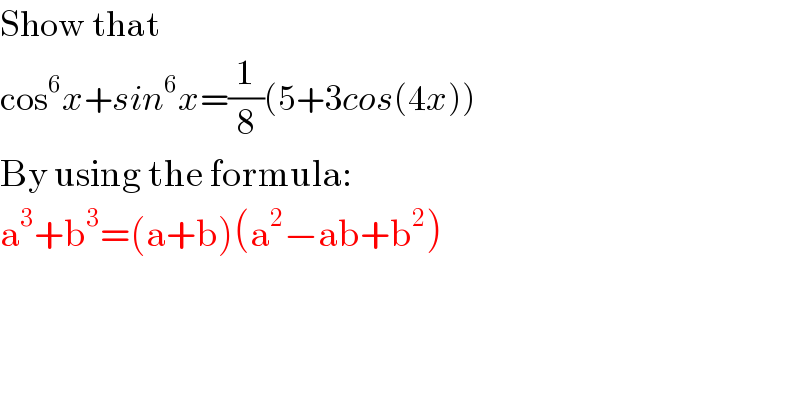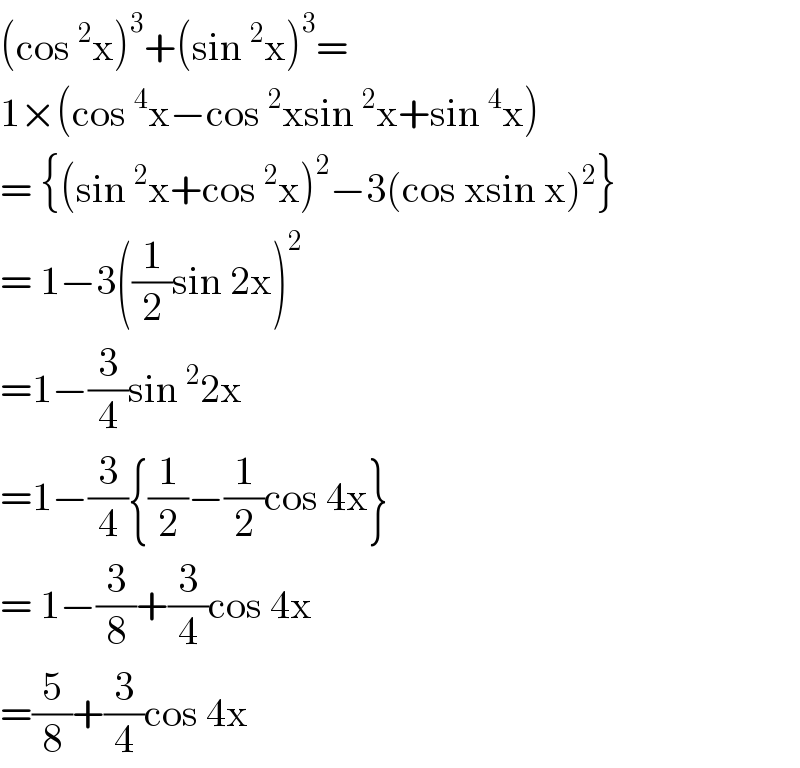
Question and Answers Forum
Question Number 94862 by mathocean1 last updated on 21/May/20

Commented by john santu last updated on 21/May/20

Commented by mathocean1 last updated on 21/May/20

Commented by niroj last updated on 21/May/20
����
Commented by i jagooll last updated on 21/May/20
��������
